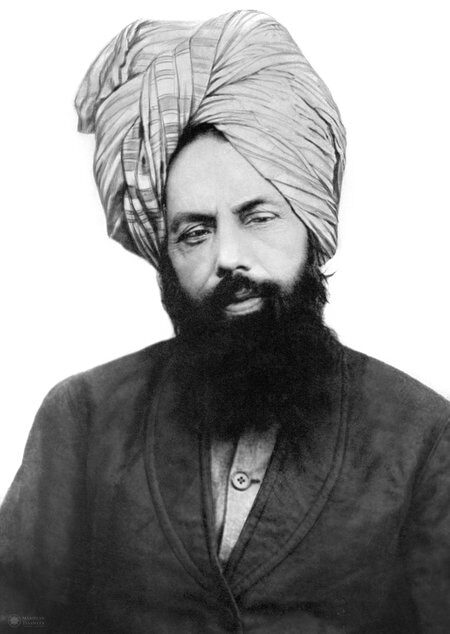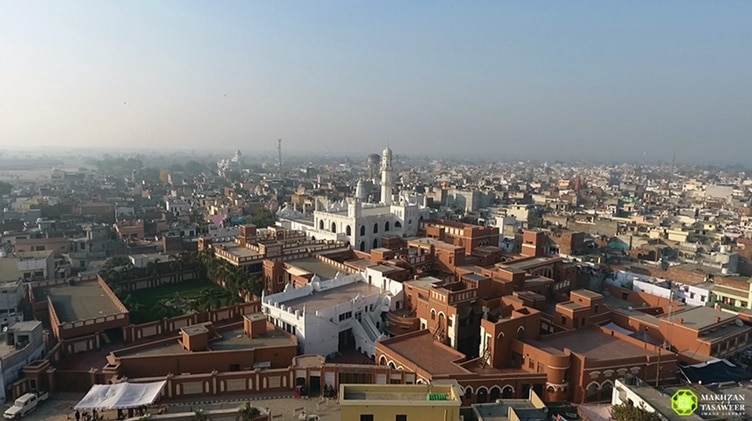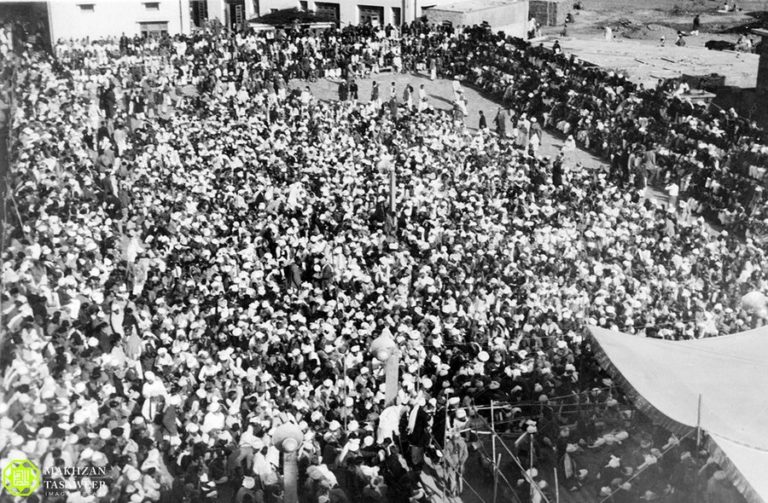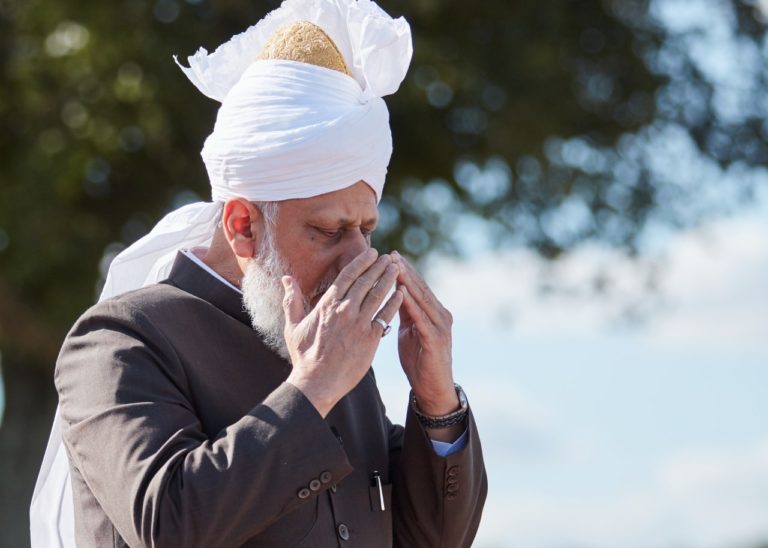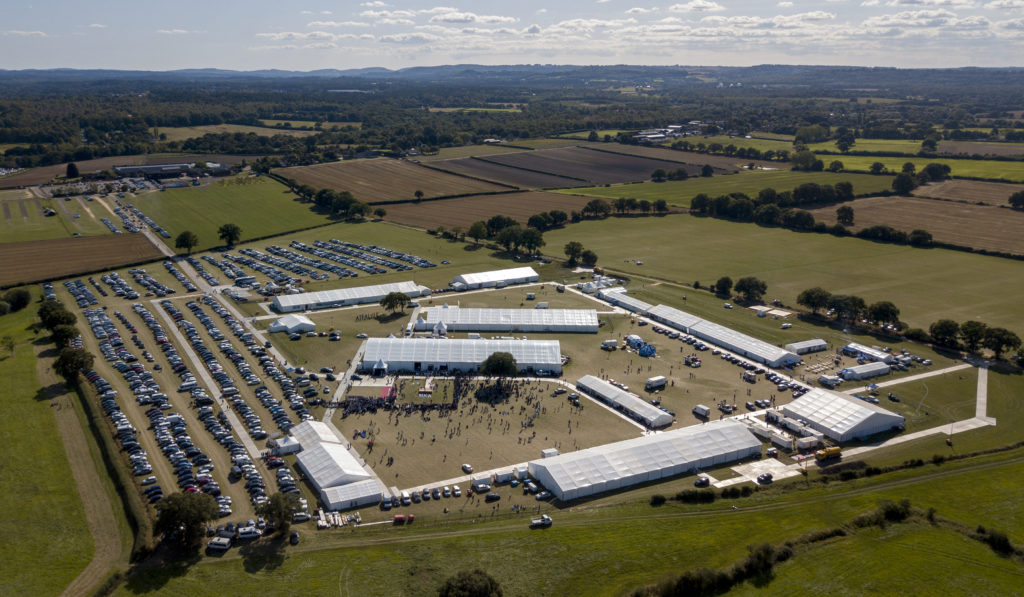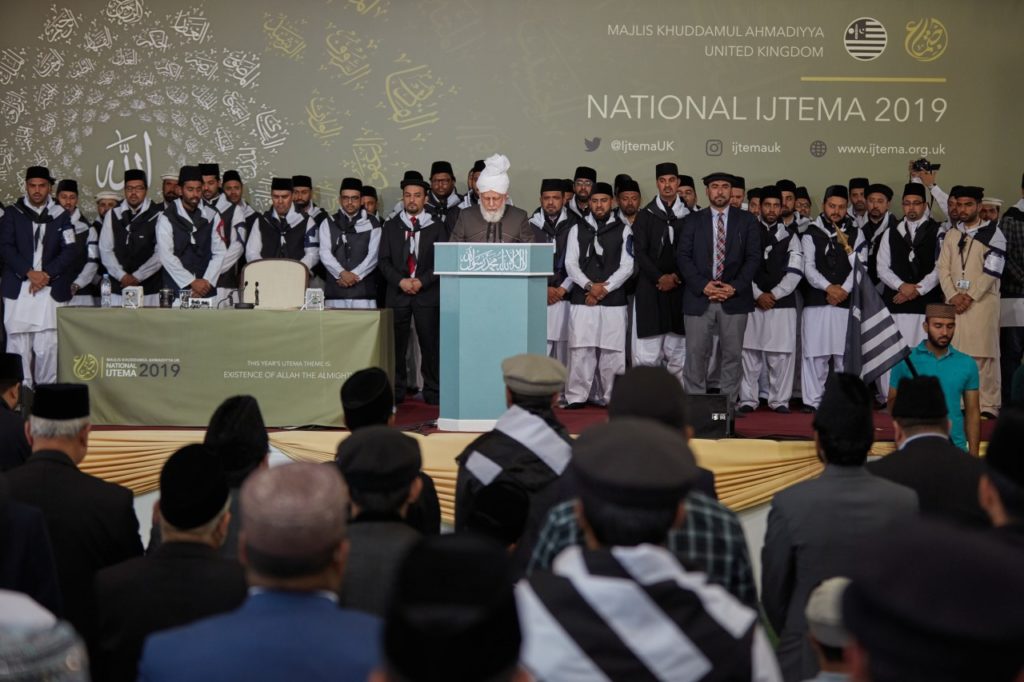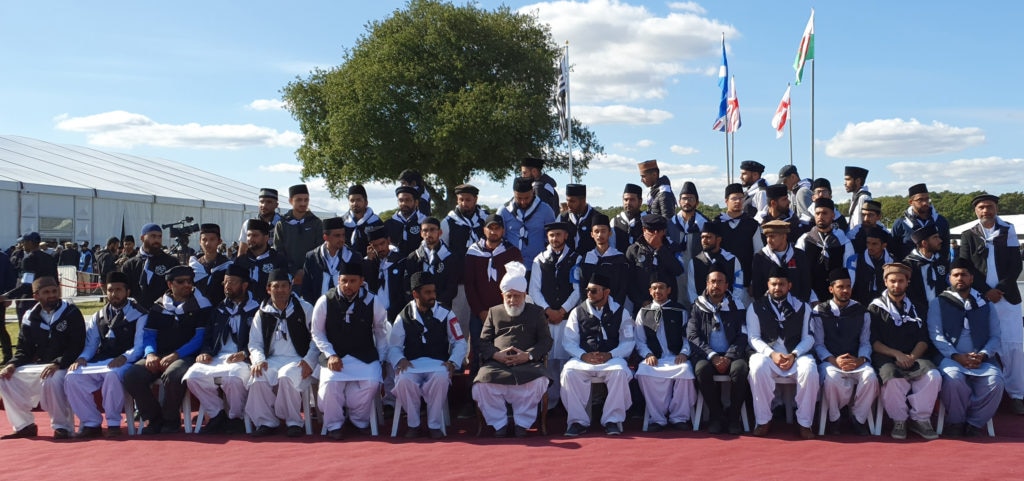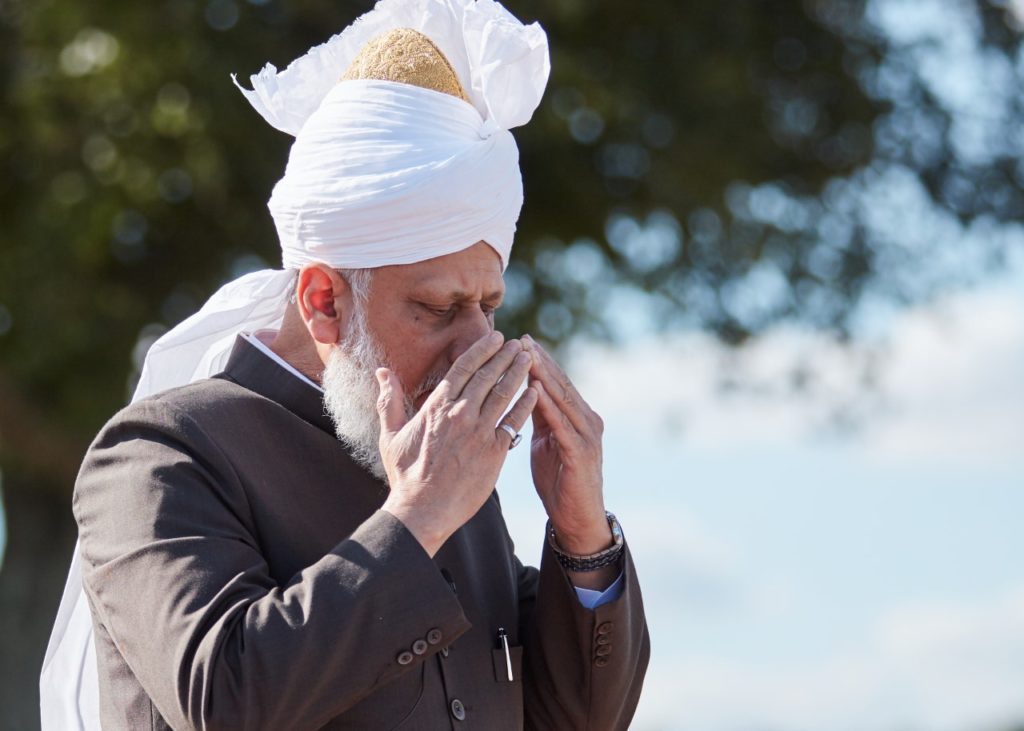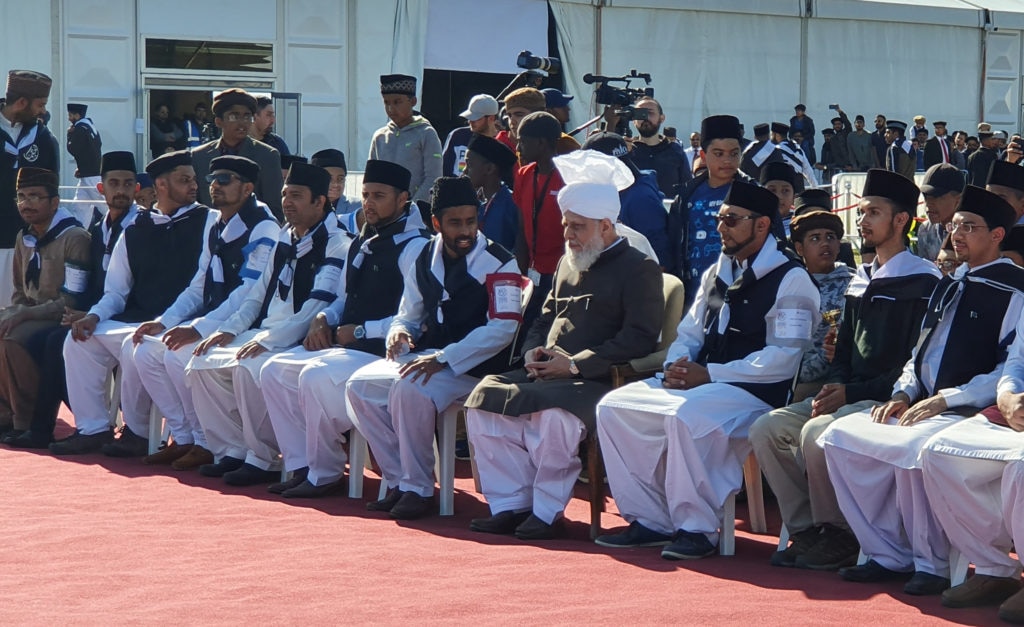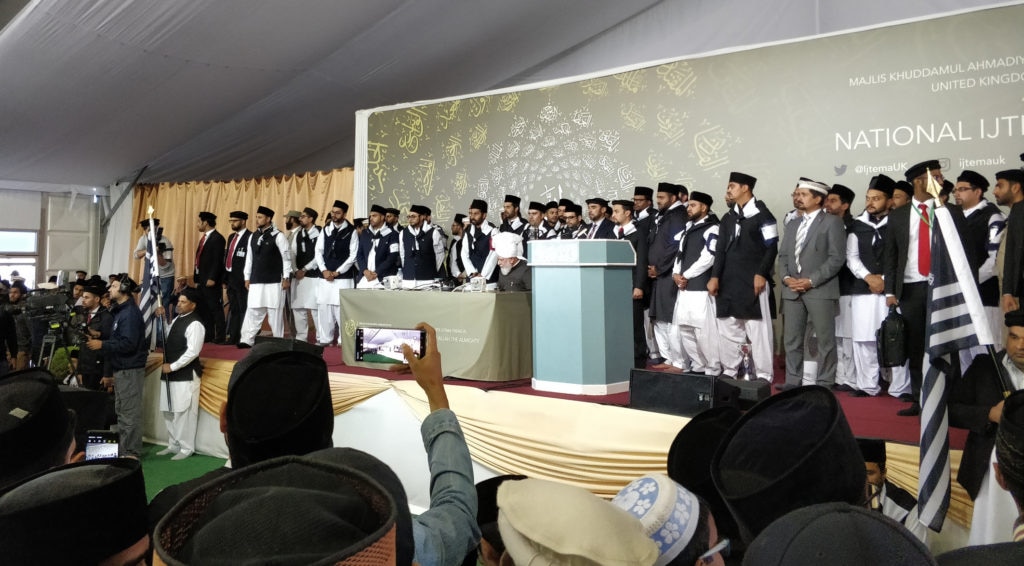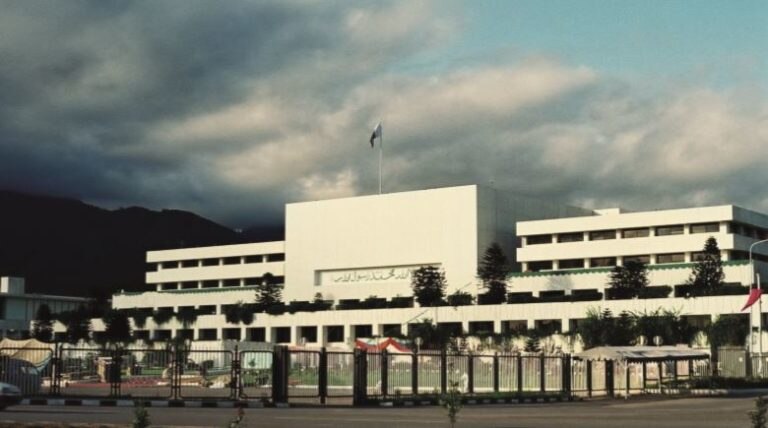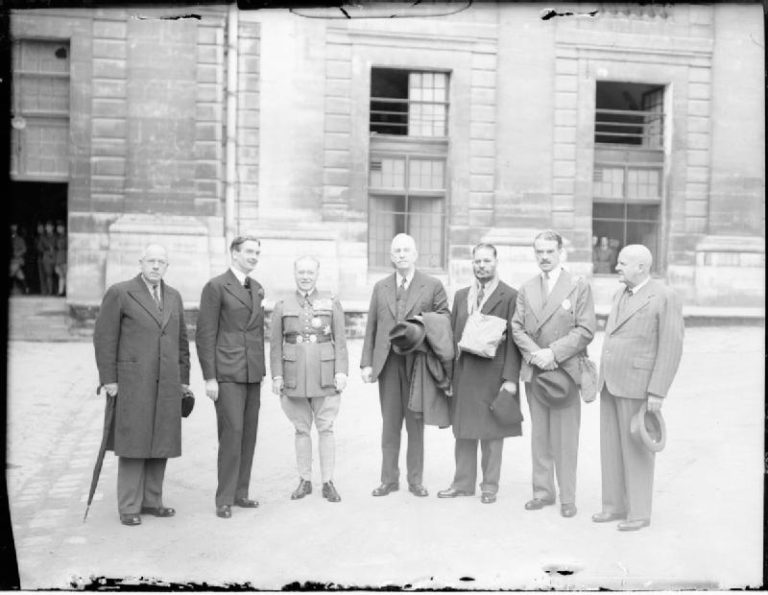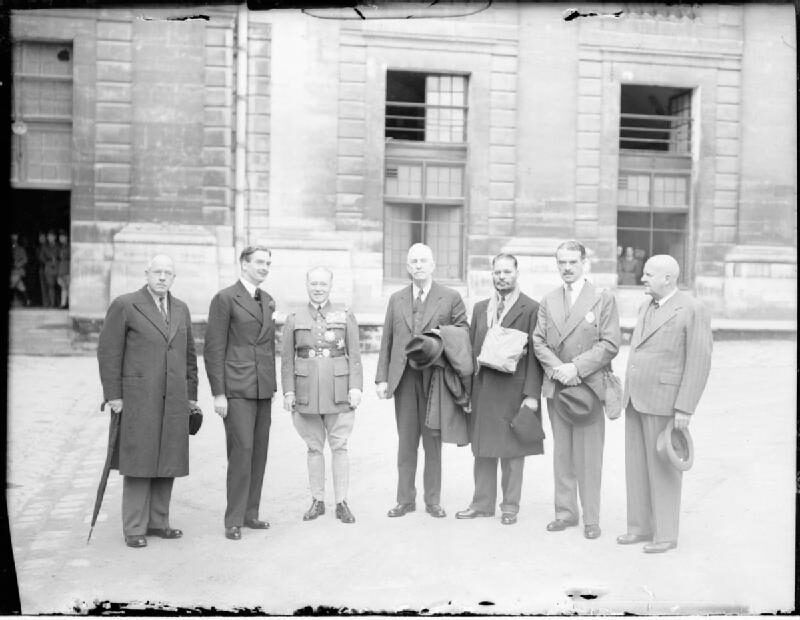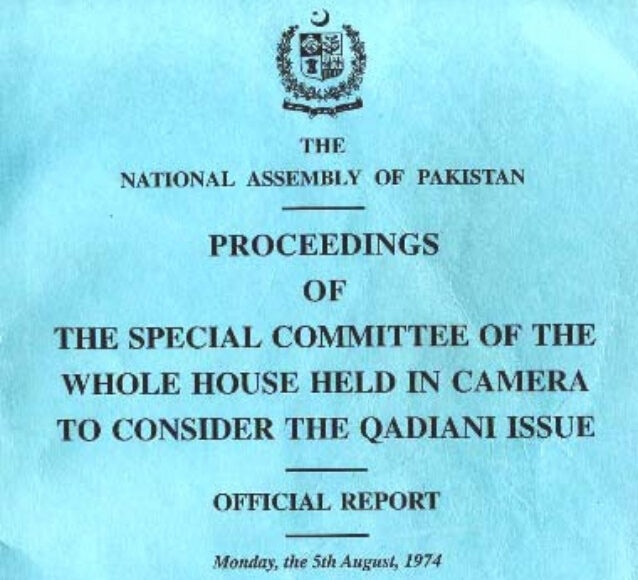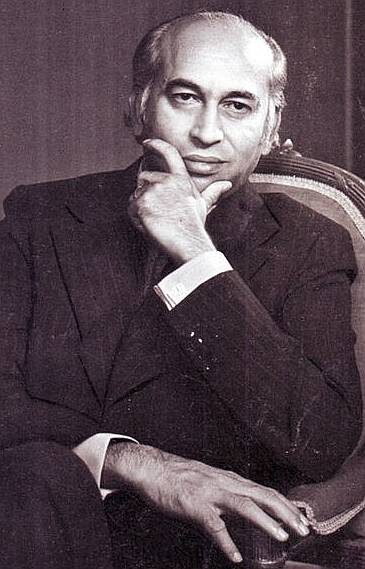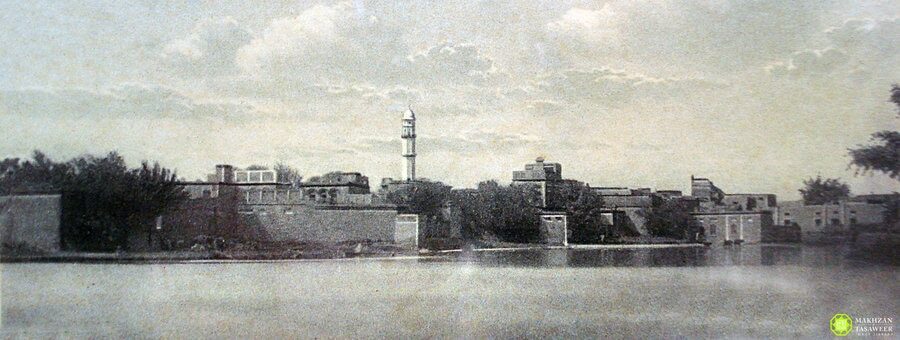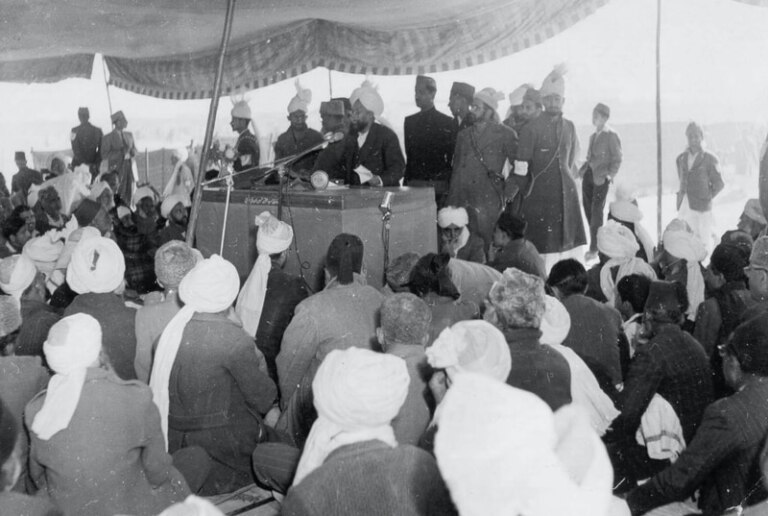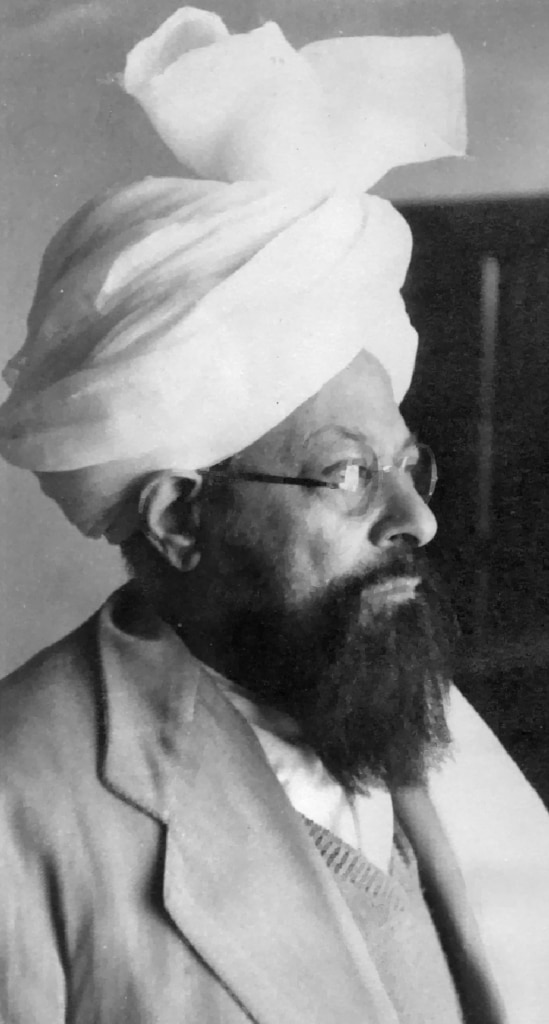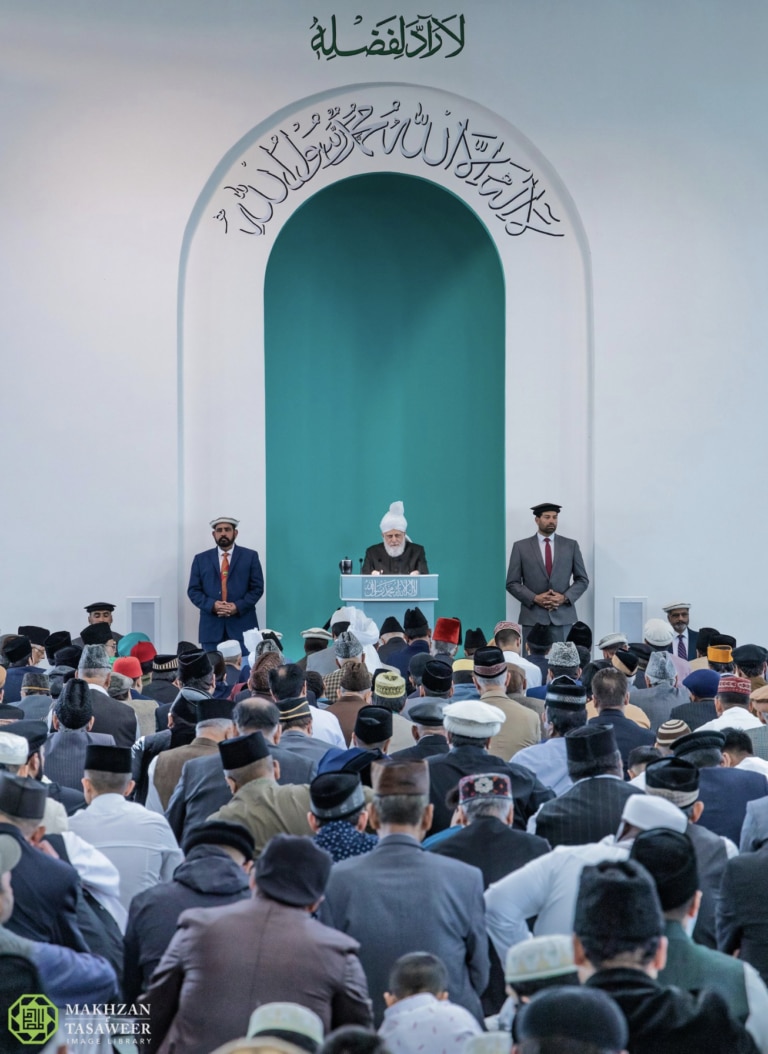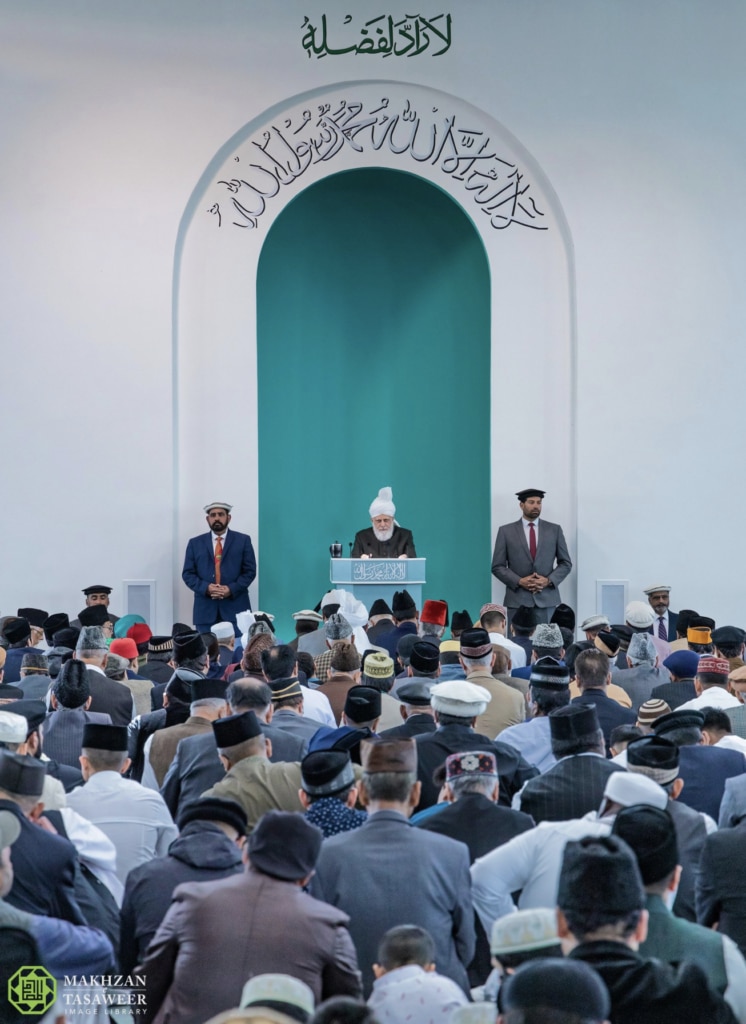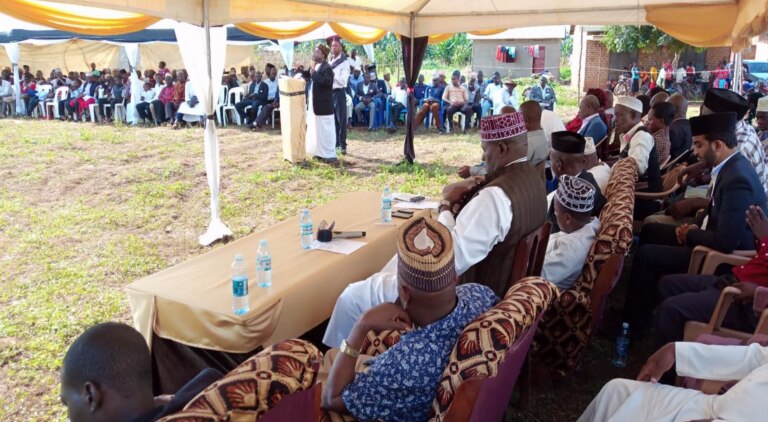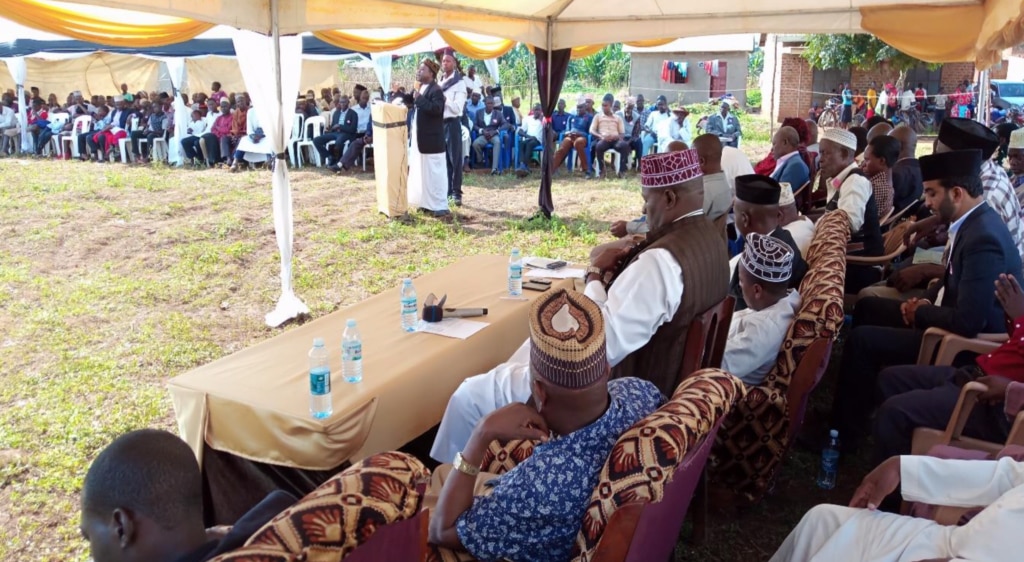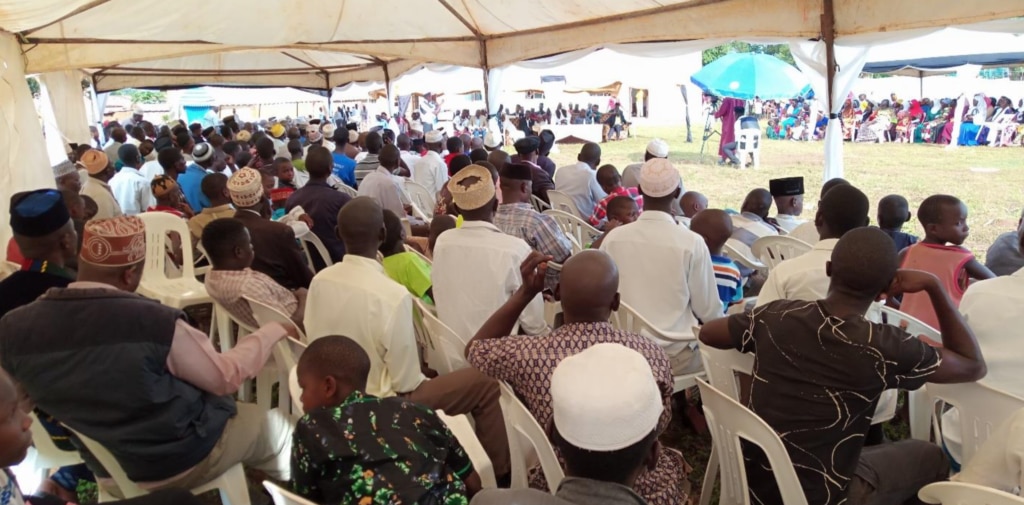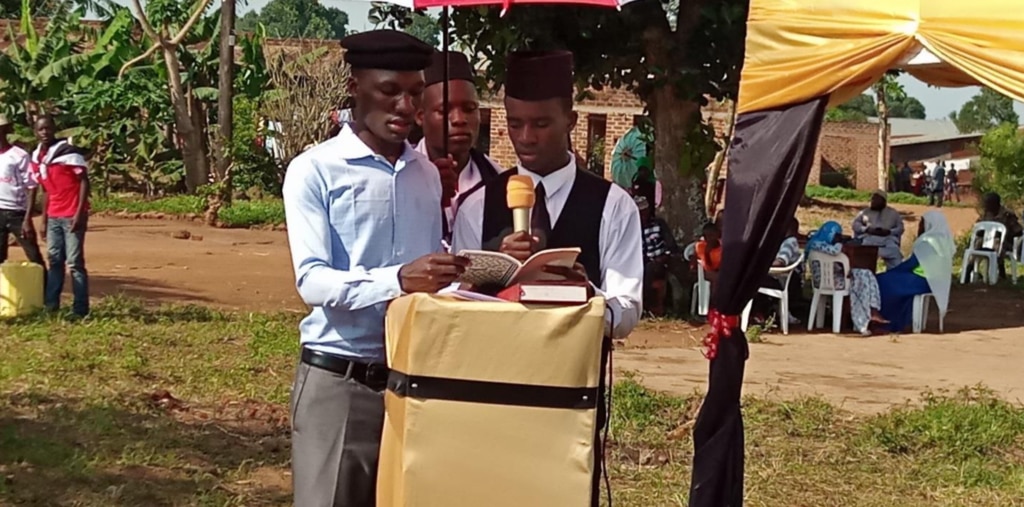Friday Sermon
9 August 2019
Review of Jalsa Salana UK 2019
After reciting Tashahud, Ta‘awuz and Surah
al-Fatihah, Hazrat Khalifatul Masih Vaa said:
By the
grace of Allah the Almighty, last Sunday, Jalsa Salana [three-day annual
convention] came to its conclusion. By the grace of God Almighty, we received
countless blessings which are attached to such gatherings.
In the Friday Sermon following the Jalsa,
I usually mention the impact of the Jalsa owing to the grace of Allah the
Almighty. The impact of the Jalsa’s atmosphere is not only felt by members of
the Community but also by non-Ahmadi guests as well. They are able to increase
their knowledge about Islam and as a result, their reservations regarding Islam
are removed.
However, I would first like to thank all
the male and female workers, irrespective of the department and capacity they
served in; from assistants to office heads, all men, women, children, young and
old were fulfilling their duties and obligations in a selfless manner. They
were portraying the true image of Islam to the guests through their practical
examples. The volunteer workers are especially deserving of our gratitude as
they came forward in large numbers to serve the guests of the Promised Messiahas
and they indeed are at the forefront of all the duties. May Allah the Almighty
reward them all.
In addition to the volunteers who serve at
the Jalsa, there are also workers who are permanently employed by the central
offices. There are the workers of MTA, which also includes volunteers from UK
as well as other countries. Some have been working on the preparation of
documentaries which were broadcast and there were some who were working in the
studios. In short, every department plays a very active role during the Jalsa.
The exhibition organised by The Review
of Religions magazine also has a very positive impact. Then there are the
exhibitions by the ARC Department and by the image library
[Makhzan-e-Tasaweer]. All these departments play an active role during the days
of Jalsa. All the workers who worked before Jalsaas well as those who
worked after it play an important role. Hence, all of them deserve our
gratitude.
Now, within the time we have, I will
present the views and sentiments of some of the guests.
Malay-Hoso Yaqoob Sahib, Vice President of
the Muslim Community in Benin, participated at this year’s Jalsa and said:
“I have performed Hajj more than twenty
times, however I witnessed a far greater level of organisation by attending the
Jalsa Salana of the Ahmadiyya Community. Never in my life have I ever witnessed
an atmosphere as I did at the Jalsa. I have previously attended many religious
conferences and gatherings but never experienced an atmosphere like the Jalsa
Salana. The level of organisation, from being received at the airport to being
transported to the accommodation was such that it felt like one was in the
comfort of their own home. I met people from all sections of society at the
Jalsa, including engineers, doctors, professors and many other highly educated
and intellectual people, who all served us with great humility.” He was
extremely pleased upon observing this. He then further stated regarding my
addresses, “We have received the true message of Islam, and this is the very
message that the Islamic world and Muslims are in need of so that the
reservations people harbour about Islam are removed.”
He further states:
“By coming here, I have learnt a lot.
Ahmadiyyat indeed is the true Islam.”
He then states:
“I will go back to Benin and tell people
that they should not listen to others but instead learn from Ahmadiyyat as it
is only the Ahmadi Muslims who hold true honour of the Holy Prophetsa.”
Then, Simeon Sawadogo Semun Sahib of
Burkina Faso, who is the minister of religious affairs as well as the minister
of interior and the minister of the state, expressed his sentiments by saying:
“As the minister of religious affairs, I
respect all religions. Having participated in the Jalsa, many of my questions
have been answered. I received answers to questions I did not even ask. This
has helped me a great deal. This was the first time I attended the Jalsa. The
pure thoughts and atmosphere of the Jalsa have greatly helped me from a
spiritual perspective. We are able to live together if we act in accordance
with love, morals and principles.”
Then in relation to the workers at Jalsa,
he said:
“The volunteer workers at Jalsa were
cleaning toilets, washing plates and little children were distributing water.
All of this could not have been possible without a spirit of sacrifice. This
passion to serve others is indeed extraordinary.”
He continues:
“I also went to the Fazl Mosque. It is a
historic mosque, which was rather small, but there was an attraction,
simplicity and beauty to it.” In relation to the Bai‘at [pledge of allegiance]
ceremony he says:
“It was a chain of sincerity, devotion and
obedience, which can serve as an example for the world but the people are not
paying heed to the words of the Khalifa. Today’s world is chasing after
materialistic objectives. However, the ill effects of this materialism is also
adversely affecting man.”
With regard to my addresses he said:
“In his address, His Holiness presented a
code of conduct in order to establish an excellent society; fulfilling the
rights of parents and the rights of children.”
All of these issues that were addressed in
the concluding speech had an impact on many and most gave similar comments
regarding it.
Sayouba Quedraogo Sahib of Burkina Faso,
who is a member of parliament, said:
“The Jalsa was excellent. Everything was
well-organised and everyone was busy in fulfilling their duties. People from
all over the world, young, old, men and women were prepared to render any
service for the sake of Islam. I believe that today, Islam is being propagated
through Ahmadiyyat. Ahmadis help each other and are always ready to help
others.”
In relation to me, he said:
“You prayed for our governors and for the
establishment of peace, which is a treasure for us. On the occasion of Jalsa,
we were received in an excellent manner. All of the other speeches were also
wonderful.”
The chief Rabbi of Athens, Gabriel Negrin
Sahib, says:
“I am grateful to God Almighty that He has
granted me the honour of being a part of this astonishing international Jalsa.
The atmosphere of the Jalsa and the openheartedness of both the organisers and
the participants openly portray the motto of the Community, ‘Love for all’. As
a Rabbi, I have experienced a sense of acceptance and respect here for other
religions and beliefs.”
He further says, “All of the revered imams
whom I had the chance to meet and speak to honoured me from the bottom of their
hearts.” He then says:
“I was truly happy at the fact that I was
able wear my specific hat on my head, the Kippah, in the midst of thousands of
Muslim brothers without any threatening signals, angered looks and, God forbid,
violent reaction. This was completely in contrast to what I have experienced in
other places.”
He says:
“I was looked after in every respect. I
was even provided with food according to my needs. Adjustments were even made
for my religious obligations and this is not an easy task. However, the
organisers of the Jalsa and my hosts did all of this for me.”
The chief of a Buddhist temple in Japan,
Yoshida Nichiko, attended the Jalsa. According to him, the mother of the Meiji
King was a disciple at this temple and the ashes of the King’s mother have been
buried at his temple, which is situated in Tokyo. He said, “Seeing the
atmosphere at the Jalsa, one’s heart experiences true peace. Even though
everyone is checked for security purposes, I have not seen anyone quarrel or
argue. From the food to the speeches, the entire programme was very well
organised.”
In relation to my address about religion,
he says:
“It seemed to be according to the need of
the time. Today, it is truly essential to explain to the world that through
religious teachings of high morals, we are able to fulfil each other’s rights.”
He further says, “Even the Japanese society faces problems regarding parents
and children and their estranged relationships. Despite every effort, we are
unable to counter this growing issue and we can benefit greatly from your
guidance and I will certainly do my utmost to avail from this.”
He then says:
“Even prior to this, I did not have a
negative impression about Islam. However, seeing the atmosphere of Jalsa, when
the time for the Bai‘at ceremony approached, I was unable to control myself and
I decided that I should extend my hand to you in order to form a society that
is based on love and brotherhood. Hence, I participated in the Bai’at as well.
I accept your leadership and promise to support you in the efforts for world
peace.”
This does not mean that he has performed
the Bai’at, however, he says that he will strive to work with us for the
purpose of establishing peace in the world.
A female guest from Argentina, Judith
Sahiba, who is a Christian herself but her husband accepted Ahmadiyyat ten
months ago, says:
“I am a lawyer by profession. My favourite
speech of the Jalsa was the concluding address delivered by the Imam of the
Community,” speaking about my address, “in which he elaborately and beautifully
highlighted the human rights established through Islamic teachings. I was
somewhat worried before the event and had some reservations to attending the
Jalsa. I thought that as such a great number of people are gathering, there
must certainly be some disagreements and discord. However, the manner in which
you gather together is completely different to the manner in which we would get
together. Despite the rush of people and people gathering in such a large
number, there was a constant atmosphere of love, affection and peace. People
had constant smiles on their faces.” She further says, “I was also concerned of
being ordered and pressured to observe the Islamic veil in order to be able to
participate in the Jalsa. However, I felt very comfortable being around your
community without observing the Islamic veil and your men and women treated me
with great respect. As a matter of fact, I felt as if you were taking care of
me more than others.”
The Minister of Post and Telecommunication
of Liberia, Kooper W Kruha Sahib, attended the Jalsa. He said:
“The various programmes of the Jalsa were
held in such a beautiful manner that I was unable to find any flaw in them. All
the departments, from the public relations department to the kitchen, all
worked together as one. The greatest thing of it all was that the entire
organisation was being handled by volunteer teams who were cooperating with one
another and working side by side in an atmosphere of brotherhood. In my entire
life, I have not seen the type of commitment towards volunteer work as these
volunteers showed toward theirs. During the programmes of the Jalsa, I was able
to observe how the participants of the Jalsa showed love and respect for one
another. To arrange at such an extensive level for a crowd of over 39,000
without any organisational shortcomings and organise an entire programme; for
me, at least, this is an astonishing achievement.”
There was a guest from Uruguay, who is a
professor of oriental studies at a university. She says:
“I have been studying various Muslim
countries and Muslim organisations for over thirty years. Having participated
in your convention, I have come to see two outstanding qualities which I have
not seen anywhere else. The first is the unity of the Community and the example
of its solidarity through a single leader which I have not seen anywhere else.
From the missionaries to the volunteers working for various departments whether
they were serving food or driving cars, all had one commonality; every one of
them expressed extraordinary sentiments of sincerity and obedience in their
relationship with their Khalifa.”
This is the standard that both the friends
of the Jamaat can see as well as all those who harbour jealousy in their hearts
for the Jamaat. It is owing to this that the latter then seek to create discord
but this is the very thing that we have to defend today, both with our actions and
with prayer.
Then, mentioning the second aspect, she
said:
“No form of racism exists in the
community. Whether one is a born Ahmadi or a new convert, an Arab or a
non-Arab, a Pakistani or a non-Pakistani; the Ahmadiyya Community is free from
all forms of racism and prejudice.”
This is an excellence that should not
simply be exhibited temporarily for these three days but should be adopted
permanently. This in fact was the final message which the Holy Prophetsa
imparted to us, i.e. that no white has any superiority over a black, nor a
black over a white, no Arab has superiority over a non-Arab and nor does a
non-Arab over an Arab. As human beings, all are absolutely equal.
Then a guest from Morocco, who is a professor
of philosophy, says:
“We are leaving with very good impressions
from this Jalsa. This was a good opportunity to closely analyse the Jamaat. In
this international gathering, we witnessed a very strong organisational
structure and excellent reception and hospitality of the guests. Like this, we
came to know of the lofty morals of the Ahmadiyya Jamaat, which in fact are a
perfectreflection of the teachings of Islam and the Holy Prophetsa.
By means of this Jalsa, the false propaganda spread by the opponents also was
made evident. Such people aimlessly keep such rancour and enmity against this
divine Community. May God Almighty continue to grant you the capacity of
serving humanity.”
Then Mr Al Haaj Muhammad Wakeel Yaatara of
Guinea Conakry, who is the inspector general of religious affairs, states:
“The most intriguing aspect for me was
that the moral training of the Ahmadis has been done purely according to the
teachings of Islam. All the Ahmadis who had gathered here demonstrated an
outstanding example of brotherhood within Islam. It seemed as if they were all
a progeny of one mother and coming from a single household. Extraordinary order
and discipline, the smiling faces of the volunteers, freely being able to enter
and leave the Jalsa arena without causing any hinderance to anyone; it all felt
as if all of them were divinely inspired. Seeing all this, it felt that if
someone can portray Islam in the true sense, it is the Ahmadiyya Jamaat alone.”
He further states:
“I have had the opportunity to visit
Islamic countries, including Saudi Arabia on multiple occasions. But I say this
with complete conviction that I have never found an atmosphere filled with such
brotherhood in Islam. I have not the least hesitation in stating that to gather
almost 40,000 people in one place, constantly preach to them Islamic teachings
and to pass these days without any conflict or discord, spending the day in the
love of the messenger of Allah, is a hallmark of the Ahmadiyya Jamaat alone.”
Then, there is another lady, Fanta Fofan
Oumar Sahiba from Guinea Conakry who is a lieutenant at the Custom Airport in
Guinea. She has done the Bai‘at and is a new convert. She says:
“After being impressed by the teachings of
Ahmadiyyat and despite accepting Ahmadiyyat, my heart still harboured fear
about whether or not I had made a mistake, because after seeing the opposition
against the community and all the anti-Ahmadiyya propaganda in Guinea, I would
sometimes become worried. However, today, now that I am participating in the
Jalsa Salana UK, I can swear by God that all of my uncertainties and doubts
have been removed, and by partaking in the Jalsa, I am convinced that if there
is any community in the world today that can represent Islam, it is indeed the
Ahmadiyya Muslim Jamaat.”
She further states:
“If I can get access to video footage of
the Jalsa, then I would like to introduce my entire family to this truth and
reality.” In the end, she requested prayers that Allah the Almighty enable her
entire family to accept Ahmadiyyat, the true Islam, with true sincerity of the
heart.
Chantelle Martha Yetali, who is the
councillor general of Gabon to Benin says:
“Prior to this, I participated in the 50th
Jalsa Salana, and now I am pleased to be partaking in the 53rd Jalsa
Salana with sentiments of deep and heartfelt gratitude. I found the environment
to be spiritual the first time around as well, and even this time I felt the
same spiritual energy with the same emotions. I have the same feelings as
before. The young and old, the elderly, the youth and the children and women
all meet one another with such love. As far as the organisation is concerned, I
simply do not have the words to explain it. The organisation of
Jamaat-e-Ahmadiyya’s volunteers is an example par excellence. Every single thing
was in its place and where it belonged. Everything was of the highest calibre,
and every volunteer displayed humility. They were filled with a passion to
serve and were ever ready to offer any kind of help. I began to consider myself
a part of this environment and did not feel estranged in the least.
“The speeches were also excellent and
filled with the Islamic teachings. The hospitality was excellent and I had the
opportunity to view the exhibitions as well. They were highly beneficial in
giving a better understanding of the history of Ahmadiyyat. There was a lot of
information in the exhibitions, and they afforded the opportunity to learn
about the service to humanity that the community is doing.”
Comlan Patrice Sahib, Member of Parliament
and Head of the Finance Commission in Benin stated, “This was my first time at
the Ahmadiyya Community’s Jalsa. I was highly impressed.” He says:
“When I was about to start my journey for
the Jalsa back in Benin, I could never have imagined that I am about to go and
attend such an enormous and magnificent convention. People from all backgrounds
and walks of life were there, and yet, I did not see any signs of unhappiness
on any of their faces. They all took such excellent care of me from the moment
that I landed at the airport to the actual Jalsa. Young and old, everyone
served me excellently. It seemed as though everyone had forgotten about
themselves and devoted themselves towards serving the guest instead.”
He then says:
“How was it possible to organise and
maintain the discipline of people from various cultures, languages and race,
without any commotion or any kind of dispute and that too without the help of
any police or army?”
He says:
“I have concluded after pondering over
this, that it is possible only due to your hard work and Divine succour granted
to the community.” Then, with regard to my addresses, he said:
“They are vital for establishing
international peace. I also really enjoyed the exhibitions which explained the
history of Ahmadiyya Community. I was deeply grieved upon hearing the horrific
events surrounding the martyrs of Ahmadiyyat and acquired a great deal of
knowledge.”
Former Prime Minister of Gabon and Member
of Parliament, Paul Biyoghe also attended the Jalsa. He says:
“For thousands of people from over a
hundred countries to gather in a single convention was a completely unique
experience for me. A large number of volunteers worked night and day to ensure
that everyone’s needs were met, and every person was ever ready to serve one
another; the young and the old, the elderly, the children, and the women all
the same. And no unfortunate incidents took place either. I also had the
opportunity to learn a great deal about Islam and especially about Ahmadiyyat
from all the speeches delivered at the Jalsa.
“In our country of Gabon,
Jamaat-e-Ahmadiyya is relatively new. I used to think that Ahmadi Muslims were
like all other Muslims. However, ever since I received the invitation to attend
the Jalsa, I thought to myself that I should personally go and see what kind of
people they are. Is the Islam of Ahmadiyyat the same as we watch on the
television; those who are ruining the peace of the world? The truth is that I
have actually been very impressed by your work here. You are hard-working
people and your Islam is the true Islam; today, the world stands in need of it.
My country also stands in need of this very Islam.”
Then, another person from Gabon, Pacide
Olouba Oounga Sahib, Director of Cabinet in the Ministry of External Affairs,
says:
“The environment of the Jalsa was
profound, it was a very spiritual atmosphere; I can never forget it. I am
highly impressed with the organisation of the convention. Everyone – the young
and the old – were all interconnected like a chain and were working together
like a chain.” He then says:
“By participating in the Jalsa of the
Ahmadiyya community, I was afforded the opportunity to witness a practical
example of Quranic and Biblical teachings in action. Everyone was living with
one another like one big family.” Similarly, he also mentioned my addresses,
saying, “They impressed me greatly. By participating in the Jalsa, I was able
to learn a great deal; I was able to discover and understand a lot more about
Islam. I am not a Muslim, but now, I consider myself to be one. Similarly, I
also had the opportunity to visit the various exhibitions and stalls at the
Jalsa which greatly increased my knowledge.”
Then, a guest named Harry Alegonsa, who is
currently advisor to the president of the Central African Republic, says:
“The organisational arrangements were
extraordinary. During the Jalsa, the volunteers of the Ahmadiyya community,
amongst whom were there elderly and the youth – indeed, people from every walk
of life – by obeying their Khalifa, proved the excellent merit of their
organisation. The Ahmadiyya community has a central purpose which is to
establish universal brotherhood in the world. And to achieve this, they work
night and day, while in other organisations of the world, this level of
sincerity is seldom witnessed.”
Then he says:
“The teachings are truly profound and
lofty. The Islamic teachings and love that you present, which had impacted the
heart, are very different than that which people attribute to
Jamaat-e-Ahmadiyya, and due to their lack of knowledge and understanding, they
assert false allegations against them. I would like to take this opportunity to
present congratulations on behalf of myself and my country, and I extend my
invitation to the Ahmadiyya community that they should also make known these
teachings and this love in my country. My country, after many years of war and
strife, is now finally moving towards peace, and through your teachings can
achieve long-lasting peace.” He also says, “The atmosphere of the Jalsa is one
that I simply cannot forget, and I will try to participate in this Jalsa every
single year in order to try to acquire spiritual serenity, and I pray for
this.”
He then further states:
“Now, I will return and spread the message
of the Ahmadiyya community to others, informing them that this is in fact the
true Islam.” He says, “The International Bai‘at had a deep effect on me. I am
not an Ahmadi, but when you were taking the pledge of allegiance, I was
promising to myself in that moment that I shall, as far as I am able to, help
this community in my own country.” He also had an audience with me and told me
that I should consider him my ambassador in the Central African Republic.
The Vice Minister of Religion in Paraguay,
Fernando Griffith Sahib, also attended the Jalsa. He says:
“I am very pleased to have learnt about
the Ahmadiyya Community. I loved the fact that countless people were serving as
volunteers and were all working towards a common purpose. I feel that Paraguay,
as a country, can learn a lot from your community.”
Then, in relation to my speeches, he said:
“Great emphasis was put upon the education
and training of children and also upon maintaining good ties with kith and kin,
and I especially liked what His Holiness said about women and children in light
of the Islamic teachings.” Then he also said that despite being a temporary
setup, the arrangements were extraordinary.
Ildar Safan Sahib from Moscow said after
having attended the Jalsa:
“We are a family who has come for the
first time to participate in the Jalsa. We greatly enjoyed the Jalsa and will
continue to remember it for a long time and will also inform our friends about
these memories. All of the arrangements were excellent. The work of the
volunteers was great, who always met us with a positive attitude. They were always
ready to help with a smiling face. I was greatly pleased to see young children
voluntarily working, and at every step we were taken care of so well that we
felt like they are our own.”
Then there is a guest from Brazil named
Mauro Henryque, who is the president of Petropolic City Council. He says:
“I feel extremely happy that I had the
opportunity to represent my country, Brazil, in this magnificent Islamic annual
convention. The speeches of the Khalifa are a reflection of true Islam. Your
words naturally descend upon the heart. I spent the three days of Jalsa in a
spiritual environment and felt no weariness or exhaustion at all. Witnessing
the spectacle of congregational prayer at the Jalsa was an extraordinary and
wondrous thing for me that everyone stands and sits at the calling of a single
voice.” He is not a Muslim, but he observed the prayers.
“Aside from this, another thing which has
left an extraordinary impact upon me, which I simply cannot go without
mentioning, is that as soon as the Khalifa arrives anywhere at all, the crowd
of thousands of people immediately fall silent. Nobody needs to tell anyone to
be silent. This demonstrates that not just among the organisers, but in fact in
the hearts of every single person, there is an enormity of genuine respect and
awe for the Khalifa, and these are the memories I am taking back with me.”
Then, he says, “Whatever I have felt here, I will spread it in my centre and in
my council, which is that this indeed is the true Islam.”
Then, Orli Mesias, who had come from
Ecuador and is the bishop for his region, said:
“The arrangements for the Jalsa were
spectacular. The food was different for me, but I liked it. The atmosphere of
the Jalsa was like a big family gathering wherein there was no feeling of
estrangement amongst anyone and despite not knowing one another, there was a
feeling of mutual acquaintance and peace. The speeches of the Khalifa contained
all those necessary elements which are needed to change our perspective. My
favourite aspect about these speeches was that His Holiness did not say
anything negative about any other nation or faith. Instead, all of his focus
was upon the true and positive teachings of Islam. The Imam of the Ahmadiyya
community read out a hadith wherein it was stated that on the Day of Judgement,
God will ask His servants, ‘I was hungry and you did not feed me; I was thirsty
and without clothes and you did not give me water or clothing.’ This same thing
is mentioned in the Bible as well, which had an impact on me. It was then that
I understood that all religious teachings are from one God.”
May Allah the Almighty enable him to also
understand that the God from whom these teachings originate has also sent the
Holy Prophet Muhammadsa, and may these people accept the true
teachings of Islam.
He goes on to say:
“When I left my house for the purpose of
attending this convention, in my heart, Islam was no more than just another
religion. However, after coming here, I have come to learn that Islam is not
just the name of a faith, but the name of a glorious brotherhood. It is a
single tribe, a single family. I have been superbly impressed by the Islamic
spirit of brotherhood and having witnessed the passion and spirit of sacrifice
that you all possess.”
Furthermore, regarding the international
Bai‘at ceremony, he says:
“At first, I simply felt that this event
carries a sense of importance for all the participants of the Jalsa. However,
as soon as the Bai‘at commenced, someone put his hand upon my shoulder, and I
also placed my hand on the shoulder of the person in front of me, and I felt
that there was an electric current flowing through the participants of the
Jalsa. I especially felt that after this event, Ahmadis were feeling totally
refreshed, and their condition was as though they had been granted a new life
altogether. I am grateful to everyone that I was able to partake of this
convention and to those who introduced me to the true teachings of Islam.”
He further says, “And now I have
particularly come to realise that we should not wrongly label the entire faith
of Islam just because of the actions of a small minority of people.”
I will mention one point that he said
regarding the translation department, which is something that he has written
and is a shortcoming which we should address. He wrote in reference to MTA’s
translation department that the Spanish translation of the proceedings was
limited only to the chair’s area. If anyone else wished to sit somewhere else,
then leaving that area would result in loss of signal due to being out of range
and they would no longer be able to listen to the translation. There is a need
to increase the range of the Spanish translation area, rather not only the
Spanish translation, but all translations need to be checked for this. Through
these guests, we come to know about some of our shortcomings as well.
Barbara Hocevar Sahiba from Slovenia, who
is a professor of Christianity says:
“I have never seen the Islam as presented
by the Ahmadiyya community. After attending the Jalsa, I feel as though I am
witnessing a new Islam. Your organisation of the convention is of a very high
standard; there were no issues, conflict or any untidiness and I am very
impressed by all this.” Then, she says, “The Ahmadiyya Community’s perspective
regarding the crucifixion of Jesusas, his subsequent migration, and
his natural death appears to be the most believable and an interpretation that
is close to the facts.”
There was a Bosnian family who also joined
in the Jalsa. The father, Senaid Begic, is a government officer serving as a
member of parliament. He says:
“First of all, I am very grateful to the
Ahmadiyya Community that they granted me and my family an opportunity to spend
some days in a peaceful and tranquil atmosphere of love. The experience of the
Jalsa Salana UK was completely new for us. I do not possess the words to
express the beauty and organisational excellence of the Jalsa. The organisers
took care of every minute aspect, and the volunteers discharged their
responsibilities with a smile on their faces.
“At the Humanity First exhibition, I was
informed that this virtuous endeavour was initiated due to my country. During
the war, the Ahmadiyya Community rendered selfless service and is continuing to
do so even today.” He then goes on to mention that their meeting with me was
something that left a lasting impression on him and his family. Their meeting
with me went very well. He then further says, “Today, I openly declare that I
will maintain this friendship and loyalty until my last breath, and within
Bosnia and also outside I will strive to assist this community as much as I
can.”
A guest named Muanis Sinanovic, an author
from Slovenia who was a Muslim by birth but had no interest in Islam and was a
Muslim by name only, says;
“Two years ago, I started learning about
Islam and began to offer my prayers, but I never prayed behind any imam. I
enjoyed offering prayers in congregation for the first time when I came here
and it was a unique experience. For the past two years in which I have taken an
interest in Islam, I had not been attached to any Islamic community or followed
any interpretation of Islam. Instead, I tried to understand Islam using my own
intellect and with an open mind. Nonetheless, when I learnt about Ahmadiyyat,
it seemed to me that the teachings of the Ahmadiyya Community were exactly the
same that I understood about Islam”, i.e. all the teachings are according to
one’s nature. One aspect he really liked was that Ahmadis practiced what they
preached. Therefore, this is a big challenge for us in that our actions and
words should always be one.
A Russian guest, Izzat Sahib, said, “This
is the first time I am attending the Jalsa. My paternal grandfather urged me to
attend the Jalsa.” In order to attend the Jalsa, his paternal grandfather urged
him to attend the Jalsa as he had received an invitation from the Ahmadiyya
Community. He then says:
“The truth of the matter is that seeing
the members of this community leaves me astonished. Every Ahmadi that attends
the Jalsa always greets one another with good etiquettes, they are ever ready
to help and always give the best advice they can to those who are facing
difficulty.”
A delegation from Holland attended the
Jalsa and among them was Van Bommel, a former member of parliament and a
psychologist. The former member of parliament says:
“I am well acquainted with the Jamaat and
have attended the Jalsa previously. Even this time, the arrangements were very
impressive. I am still at a loss to understand just how all these excellent
arrangements can be made by volunteers.”
Another guest, Ms Nikkita, who has an
Iranian background, was also greatly impressed with the arrangements. She was
particularly astonished how the Jamaat managed to secure such a large site and
how arrangements on such a vast scale were being organised. She was given an
introduction of the community in reference to Hazrat Salman Farsira
and the advent of the Promised Messiahas. In addition to this, there
was a tabligh sitting with her as well, which left a good impression on her.
Vasco Sahib of Italy, who is a professor
of Islamic Jurisprudence and Sharia in the University of Naples, writes:
“For me, Jalsa Salana was very successful.
I listened to the concluding address delivered by the Imam of the Ahmadiyya
Community and really liked it, especially the part where His Holiness mentioned
the rights of one’s family and children and also the rights of women. I took
part in the International Bai‘at Ceremony and was very emotional during the
proceedings.”
Madalena Sahiba from Italy, who has a PhD
in Islamic and Arabic Studies from the Vatican University, writes:
“The Jalsa Salana was excellent, peaceful
and had a loving atmosphere. All the arrangements were exceptional and the
speeches were also very good. They were not only for Ahmadis, but in fact they
were informative for all the guests. Everything that I learnt about Ahmadiyyat,
especially the teachings of Islam, was remarkable.”
Jawad Boulaamayl Sahib, who works in
France in the ministry of justice, said:
“I had the opportunity to attend the Jalsa
for the first time and it was pleasing for me that I got to learn about the
Community closely. During the Jalsa, I was greatly impressed by the IAAAE and
Humanity First exhibition as well as all the humanitarian work. True faith in
reality is the one that strives for humanity without differentiating between
one’s race or background. I saw the security arrangements as well as many
others and was very impressed by the professionalism.”
Among the Spanish delegation was a guest
named Susana Morales, who is a lawyer. Whilst referring to the motto, ‘Love for
all, hatred for none’, she said:
“In my opinion, this motto portrays this
exceptional gathering in full. I have seen people of different backgrounds
meeting one another. This is a religion that ought to strive to establish peace
in the world and combat against injustices. Undoubtedly these few days have
left a lasting impression on me and I will never be able to forget them.”
A guest from Brazil named, Don Francisco,
a Catholic who owns a newspaper and radio station and also has ties with the
royal family, says:
“I am often involved in various religious
programmes, but the outstanding organisation of the Jalsa was a marvel to see
and I learnt a lot from it. I feel like a changed person.” He then says, “I went
to a mosque in India with my wife, but I experienced very inappropriate conduct
from them, however, during the Jalsa, and even after, I was treated with honour
and respect.”
Eustaquio Sahib from Spain, a former
member of parliament for the Socialist Party, said:
“I find myself averse to religious
teachings, however, seeing the message of love spread by the Ahmadiyya
Community has brought me close to the community. Yesterday’s Bai‘at ceremony
has brought forth virtuous sentiments within me and as a result, I will never
be able to forget this experience. During these days, I felt as though I was an
Ahmadi, who wished to spread peace and love in the world and strive to achieve
it.”
Nizam-ud-Din Sahib, a retired justice from
Bangladesh, attended the Jalsa. He states:
“I am not an Ahmadi, but Ahmadis are
Muslims and have suffered persecution in many countries for a long time. Being
a humanitarian activist, I always empathise and support the Ahmadiyya Community
and have travelled to many countries. Every human being has a right to
propagate their beliefs. I saw the discipline and the love and respect the
members of the community had for their Khalifa, their thirst for knowledge; all
of these things were inspirational. I listened attentively to all the speeches
and many of the misconceptions I had were removed. Ahmadis ought to speak up as
much as possible so that all the misconceptions can be eradicated. Previously,
I also thought that Ahmadis did not consider the Holy Prophetsa to
be Khatamun Nabiyyin[Seal of the Prophets], however, this is not the
case as I discovered upon coming here. In short, I have learnt many new things
at the Jalsa and I am grateful to everyone, especially the Imam of the
Ahmadiyya Community.”
Hugh Farey, a Catholic Christian, who is a
scientist and is the former editor of the British Society of Turin Shroud,
says:
“I have been coming to the Jalsa regularly
for the past five years and I must admit that the blessed aura and spiritual
atmosphere that I felt the very first time when I was invited to attend has not
diminished. I am an expert in the Shroud of Turin and this is a cloth that is
of particular interest to the Ahmadiyya Community because Ahmadis believe it to
be a proof that Jesusas did not die on the cross. Despite the fact
that the majority of the experts believe that the image is that of a man that
had passed away, this fact does not deter them to invite experts in this field.
They put the fact that one may belong to a different faith to one side and
invite them again. My own analysis is that this cloth was from the middle ages
and does not contradict the belief of the Ahmadis that Jesusas
survived and then travelled to Kashmir.” He is explaining his viewpoint and
says that he also believes the same way as Ahmadis do. “The Review of
Religions exhibition is a testimony to the open-minded, peaceful and
balanced nature of Ahmadis.”
He further says:
“We held many discussions and also panel
discussions. A doctor from the USA, who is a trauma surgeon, was on the panel
for the first time. His extensive knowledge and experience further strengthened
the arguments that the man whose image is on the shroud survived the
crucifixion.” He was greatly impressed.
Peter Wadhams, who is a professor at
Cambridge University and is an official member of the Shroud of Turin
Committee, states:
“This is my first Jalsa and I am regretful
that I had not attended before this. I would like to attend these conventions
in the future and I am certain that I will attend in the future. Nonetheless, I
was greatly inspired by the meeting. For people to attend in such large numbers
and to display the Shroud of Turin with such love and due care, to spend money
for the sake of the exhibition and the seriousness with which the exhibition
was handled, alludes to the fact that the people [i.e. Ahmadis] have a yearning
to learn more about it, even though we have not yet understood it properly
ourselves.”
A delegation from the Native Canadians was
also present. The chief, Myeengun Henry says:
“It was very important for me to attend
the Jalsa Salana because it has completely changed my life. I now know more
about Islam than I did previously and I am convinced that Islam has many
similarities with the ancient religions of Canada. I was amazed to learn that
Islam grants women equal rights. Previously, I could only see men everywhere,
but later I was informed that the women have their own arrangements just like
the men. This is something that many non-Muslims are unaware of, therefore,
from now on I will tell them that Islam does not differentiate between the
rights of men and women.” He also had a meeting with me and mentioned his
sentiments about that, which were very positive as well.
Similarly, Chief Rene Warren Chaboyer also
mentions his sentiments about the Jalsa by saying:
“I am delighted that I had the chance to
address such a large gathering. I could never have imagined that Islam was such
a peaceful religion and one that taught to love the creation of God.” He
further says, “It was my wish to present the Imam of the Ahmadiyya Community
with a gift of the highest honour. I expressed this feeling to my host and in
order to fulfil this desire of mine, I decided to give a feather from my
headdress made from eagle feathers as this is something of great value to us”;
they wear a headdress made from eagle feathers. “This is a gift that I have not
presented to any leader before. I hold the Ahmadiyya Community and their
beliefs in high regard.” He also spent some time with me and regarding the
meeting, he said that he thoroughly enjoyed it and also presented the feather
to me during the meeting.
A guest from Belize, Renee Trujillo, who
is the director of news for Love FM channel, says:
“The unity I have seen amongst the Ahmadis
is something that can breathe new life into anyone. Upon seeing the unity, one
wishes to see peace established. We were provided with every kind of ease and
it was well organised. The sermons of the Imam of the Ahmadiyya Community were
in complete accordance with the need of the time. The address that impressed me
the most was the address in the ladies’ [Jalsa Gah]. This entire experience has
enabled me to better understand Islam. Having attended the Jalsa, I had the
opportunity to ask questions about the beliefs of Ahmadiyyat and this
benefitted me greatly.”
Chester Williams Sahib from Belize, who is
serving as a Police Commissioner, states:
“My knowledge for Islam has increased.
Prior to attending the Jalsa, I perceived all Muslims to be the same, however I
have now realised that there exist many sects within it. Ahmadis promote peace
and invest a lot of time for the reformation of the youth, which indeed is most
commendable.”
A member of the Congress staff from the US
Government and also the representative of the US Commission for the Promotion
of Religious Freedom also attended in an official capacity.
A representative of the Uighurs Muslims in
China also attended and said:
“I have had the opportunity to attend the
Jalsa Salana USA and the Jalsa Salana UK and it is remarkable to see how the
members of the Community work together in harmony. It was extremely impressive
to see all the volunteers from the community work in such a sincere and
selfless manner.”
They all expressed that the atmosphere of
the Jalsa inspired the youth towards creating unity amongst themselves.
I will leave out some of the other details
I have here. However, I will mention a journalist from Argentina. He states:
“As a journalist, I have the opportunity
to attend many events, however what is most remarkable about your Jalsa is that
every member seems to be also part of the organising team taking care of the
hospitality. They are both attendees as well as fulfilling the role of hosts.
In other events, a clear distinction is visible between the attendees and the
organisers. In fact, in order to hold such an event, staff is hired from
outside, however in your event, it seemed that the attendees were guests as
well as hosts. Whenever the situation arose, the guests would fulfil the role
of hosts themselves.”
This indeed is a beautiful aspect which
should be visible in every Jalsa of ours.
A newspaper columnist from Columbia, Jesus
Gabalam, who is also a lawyer, states:
“I really liked the address of the Head of
the Community in which he spoke about human rights. As a journalist, I have had
the opportunity to meet many renowned political, social and religious leaders
in the world and have now also met the Head of the Ahmadiyya Community and am
delighted to have met him. I desire that in order to enlighten the Columbian
people about the beautiful teachings of Islam, Ahmadi missionaries be sent to
Columbia as my country is desperately in need for this.”
The CEO of BBS.TV in Uganda, states:
“I was amazed to see such a large
gathering and so much discipline. There was no army or police officers present.
I am a Christian and visited the Jesus in India exhibition. I was speaking to
one of the organisers about Jesus and through the references from the Bible, he
told me about certain things which I never had heard before. I was astounded to
discover that Ahmadis in fact have more knowledge of the Bible than the
Christians do.”
Arandiya Sahib, a representative of a TV
station in Bolivia and also a presenter of a show was in attendance. He states:
“This was a very successful experience for
me. Previously, I had the opportunity to attend the Jalsa Salana in Canada. By
attending the Jalsa Salanas, I have learnt about the true teachings of Islam.
The atmosphere of the Jalsa and the various speeches delivered during the Jalsa
have removed all my doubts and misconceptions about Islam.”
Another guest was from Ukraine, Dr Egar
Sahib, who is an expert in the field of religious studies. He holds a PhD and
has also written two books. He has studied the literature of the Jamaat in
great depth. He attended the Jalsa and also did the Bai‘at. He is the first
Ukrainian Ahmadi. Whilst expressing his sentiments, he stated:
“I have had the opportunity to attend many
international conferences and gatherings on various subjects. However, having
attended the Jalsa, it has had such a deep impact upon my soul, that it will
stay with me from this life till the next.”
He further stated:
“There is a beautiful word in the Arabic
language called ‘Nur’, which means light, and Jalsa Salana is the radiant light
of faith and love which enlightens the entire mankind through it.”
He further states:
“By listening to the addresses of
Khalifatul Masih, I have learnt about the true purpose of my life in this
world.”
He also commended the organisers and
stated that they worked extremely diligently.
Similarly, there were many impressions
from those who attended from Mexico. I shall share one of them. Maria Sahiba
states:
“It has only been two months since I
accepted Islam. I had many questions about Islam, but having attended the
Jalsa, my knowledge of Islam has further increased and all my questions and
doubts have been removed. Attending the Jalsa was an unforgettable experience.
After having attended the Jalsa, I am proud of the fact that I am a Muslim and
I have vowed that from today, I will proudly wear my Hijab and will always keep
it on.”
A recent convert from Paraguay states:
“It was a wonderful experience and I also
listened to your addresses which were such that one should truly adhere to.”
In reference to my addresses, she states:
“I was able to acquire the answers to all
my questions. It seems as if you prepared your addresses in view of my
questions. I am retuning with a great deal of spiritual knowledge.”
This indeed is the work of God Almighty in
that He helps in the preparation of the addresses which then have such an
impact on people.
I will leave out the rest of the
impressions for now and will present the report from our Central Press and
Media Office.
Until now, 183 media reports have been published. The media coverage is ongoing and through this coverage, the message has reached more than 173 million people. The media outlets which gave coverage [on the Jalsa] include, BBC Radio 4, BBC World Service, BBC Asian Network, Telegraph, a Dutch national newspaper, Sky News, ITV, Express, Huffington Post, Press Association which is a news agency, EFE which is a Spanish news agency and Yahoo News. The media reports were covered by many countries, which included the UK, Brazil, Holland, Spain, Argentina, Panama, Columbia, Chile, Peru, Venezuela, Cameroon, Nigeria, Belgium, Ghana, Italy, etc.
Alhamdolillah through
MTA Africa, 19 channels gave coverage of the Jalsa. By the grace of God
Almighty, aside from members of the Community, there are many impressions from
non-Ahmadis who were greatly impressed by the Jalsa proceedings.
May God Almighty enable the Jalsa to
become a means of increasing the faith of all those Ahmadis who were a part of
it. May they adhere to and inculcate everything they heard and observed during
the Jalsa. Also, through the coverage of the press and media in which reports
were sent around the world, may God Almighty enable it to have an impact on the
hearts of people and may it become a means for them to accept Ahmadiyyat, the
true Islam.
After the Friday Prayers, I shall lead a
funeral prayer in absentia of respected Mujeeb-ur-Rahman Sahib Advocate. He
passed away on 30 July 2019 at the Tahir Heart Institute in Rabwah at the age
of 85; “Surely to Allah we belong and to Him shall we return.”
Mujeeb-ur-Rahman Sahib, by the grace of
God Almighty, was a Musi [part of the blessed institution of
Al-Wasiyyat]. His father, Maulana Zil-ul-Rahman Sahib, was a missionary and
sent his wife and children, including M Mujeeb-ur-Rahman Sahib, to Qadian for
their upbringing from Bengal. Mujeeb-ur-Rahman Sahib’s father was among the
very first students of Hazrat Hafiz Roshan Alira. Scholars like
Maulana Jalaluddin Sahib Shams and Ghulam Ahmad Sahib Badhomali, etc. were his
contemporaries. His father served for approximately 36 years in Bengal.
Mujeeb-ur-Rahman Sahib was a lawyer by
profession and by the grace of God Almighty was a very successful lawyer and
had rendered many services for the Jamaat. In 1980, Hazrat Khalifatul Masih IIIrh
appointed him as the amir of Rawalpindi and he served in the capacity of amir
till 1998.
He also greatly served in the legal case
regarding the Mari Road Rawalpindi Mosque in 1974. In 1978, he fought the case
for the Dera Ghazi Khan Mosque in the Supreme Court. He successfully fought for
many of the Jamaat’s legal cases and did great justice.
In 1978, he became one of the members of
the Standing Committee of Majlis-e-Shura. He also had the opportunity to help
serve in preparing the rules and regulations of the Sadr Anjuman Ahmadiyya. As
a member of the Fiqh Committee, he also had the opportunity to help in the
preparation of Fiqh-e-Ahmadiyya Part 1. He also had the opportunity to deliver
a speech in the 1977 and 1978 Jalsa Salana on the topic of Islam and Religious
Freedom. From 1979 to 1983, he delivered speeches at Jalsa Salana on the
following topics: The Outset of Dissention in Islam, An Ahmadi in the Eyes of
the Promised Messiahas, A Citadel of Peace and The Fruits of
Ahmadiyyat. He also had the opportunity to appear on numerous MTA programmes in
which he would respond to allegations.
By the grace of God Almighty he had great
religious and secular knowledge. He also possessed great oratory skills and God
Almighty had gifted him a particular talent in this regard. He used this
ability to the great advantage of the community and God Almighty enabled him to
greatly serve the community. Some of the MTA programmes in which he appeared
included discussions on the verdict of 1974 by the National Assembly of Pakistan,
interviews of world-renowned historians, the various beauties of Barahin-e-Ahmadiyya,
etc.
In 1984, he had the opportunity to fight
the case against the ordinance of “Banning Qadianiyat” and indeed did justice
in fighting for that case. He also had the opportunity to fight cases against
the Jamaat in the military courts as well and also helped serve the
Asiran-e-Rah-e-Maula [those imprisoned due to Ahmadiyyat].
In 1993, he had the opportunity to serve
as one of the committee members who fought the case for the basic human rights
in the Supreme Court. In 1976 he had the opportunity to read out his research
papers in the Jurist Council formed in Karachi. He also had the opportunity to
attend various seminars and meet intellectuals and experts in the field of law
from the UK, Germany, Switzerland, USA, Canada, Japan, etc. to deliberate on
the subject of human rights. He had the opportunity to address the law students
of Minnesota State University in the USA. He also had the opportunity to record
his statements as an expert witness for 18 hours in a court in Germany. In
2014, a series of lectures was organised by the USA Jamaat in various
universities in which he was invited to speak on Religion and Freedom of
Conscience.
In 2017, a Quran Conference was held in
Rice University in which the Ahmadiyya Muslim Community was also invited. I
appointed him to attend as a representative at the conference and he had the
opportunity to present the beauties of the Holy Quran before everyone in light
of the writings of the Promised Messiahas and indeed he did great
justice in representing the Community. He also had the opportunity to explain
the legal issues before Switzerland and Canada’s Immigration Board. In addition
to this, He has many more contributions. By the grace of God Almighty, every
Jamaat responsibility that he was entrusted with, he fulfilled it with a
passion of waqf [life devotion] and indeed did true justice to it.
He was married to his paternal cousin, who
passed away in 1999. He leaves behind three sons; Aziz-ul-Rehman Waqas Sahib,
who is an advocate in Rawalpindi and he also helps serve in the Jamaat’s legal
cases; Dr Ata-ul-Rahman Maaz, who is currently in Qatar and Khalil-ul-Rahman
Hammad Sahib, who is also in Pakistan.
May God
Almighty grant the deceased His forgiveness and mercy and grant him a station
amongst his loved ones. As I mentioned, after the prayers, I shall lead his
funeral prayer in absentia.
